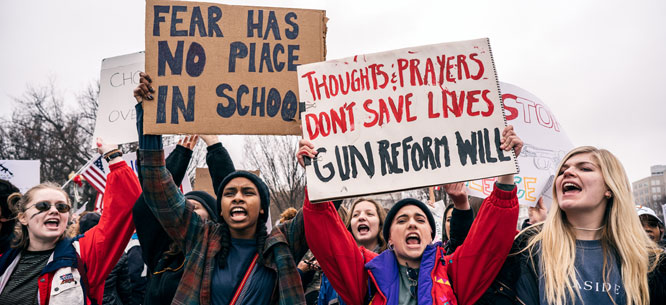Listen to the Teens
Listen to the Teens
The high-school students organizing against gun violence in the wake of the Parkland shooting could spark a much larger movement.

Early in 1960, students from the black colleges of North Carolina sat in at lunch counters in stores like Woolworth’s—lunch counters from which they had always been barred. Facing verbal abuse and police threats, they came back day after day. These students weren’t leftists, but their anger and their grit were the beginning of the left politics of the sixties. They changed the world.
Will high school students from Florida do it again? If they don’t stop their demonstrations, if they don’t accept token reforms, if students around the country join their protests, if thousands and hundreds of thousands of them come to Washington at the end of March—yes, they could change the world. They don’t have the history of oppression of the black students in 1960, and they don’t have an extended political agenda. Theirs is a single-issue politics. But guns are a central issue in American politics, and the gun lobby has been a bastion of the right. If the students take on the NRA, they will have a harsh and highly educational introduction to political life—which might well produce the anger and grit necessary to a larger left politics.
They will need adult help. In 1960, the help came from black preachers who supported the students without trying to take over or control the sit-ins. Soon the students had their own organization (SNCC, the Student Nonviolent Coordinating Committee) and the preachers had theirs (SCLC, the Southern Christian Leadership Conference). The students respected the preachers, who made the churches as well as the colleges centers of resistance. But they acted on their own.
Teachers could play that adult role today if they organize to support their students but not to preempt what the kids are doing. And these high-school students are still living with their parents. What a difference it would make if every parent signed a pledge not to vote for politicians who take money from the NRA! Politics in high schools and homes could have an extraordinary national impact.
This might be one of those moments that we live for.
Michael Walzer is an emeritus editor of Dissent.






